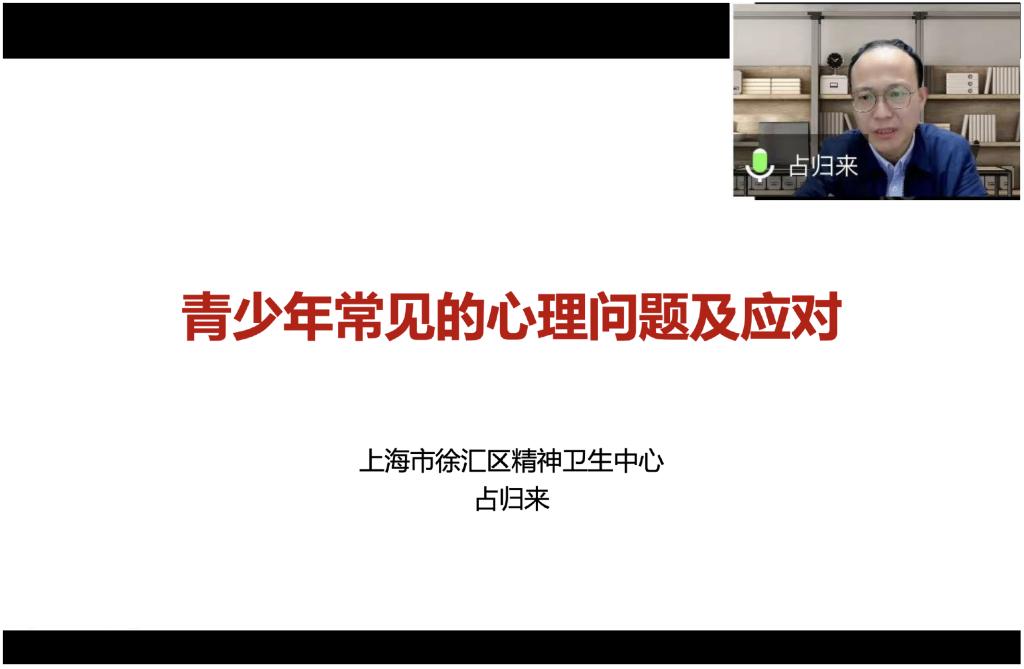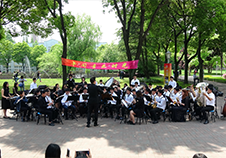
News
Grade 11: Common Adolescent Mental Health Problems and Coping Strategies
On November 10th, Dr. Zhan Guilai, the president of the Shanghai Xuhui Mental Health Center, discussed the theme of "Common Adolescent Mental Health Problems and Coping Strategies" for parents of Grade-9 to-12 students. The meeting discussed topics such as the characteristics of mental health development, common mental health problems, causes of these problems, how to handle them, and the six levels of communication and listening.

Dr. Zhan first introduced common mental health problems experienced by teenagers like having a rebellious mindset, academic anxiety, internet addiction, and a negative body image. He explained that these problems are often caused by unsynchronized development of the adolescent body as the body and mind develop at different paces. The unsynchronized pace of physical and mental growth often leads to poor social adapting abilities and difficulties with personality development, causing teenagers to struggle with their identity.
The cognitive development of adolescents develops from an experimental personality to an independent, introspective personality. However, personality development during puberty is often accompanied by impulsivity, confusion, and stubbornness. Thus, it is difficult for students entering puberty to adapt to such a dramatic change. During this challenging period, parents should show support to students, cultivate their collaborative skills, and teach them the importance of group success. Moreover, parents should help students establish positive values and practice emotion management.
When parents become more understanding and supportive of teenagers, the friction and discomfort caused by misunderstandings will fade. Together, parents and children can overcome the difficulties during puberty and foster a better family environment.
(Written by 11-5 Elizabeth Xu Translated by 11-1 Celeste Gao Picture by SHSID Media Group Edited by 11-8 Jessica Tan Supervised by Yueer Gao Reviewed by Qian Zuo)











